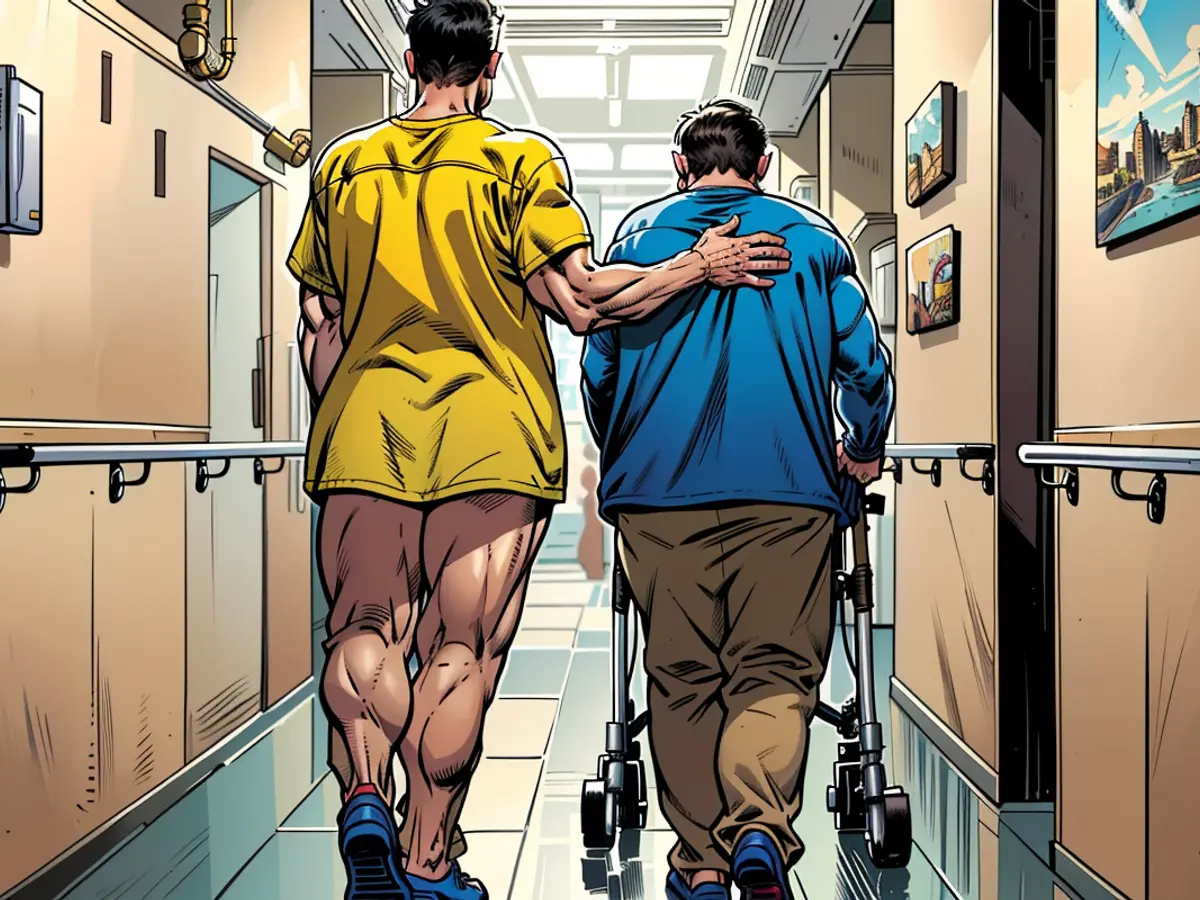Care in need - Nursing professionals urgently call for rapid reforms
Care in Rhineland-Palatinate is, according to a consensus of care organizations, the Landespflegekammer, the Social Association VdK, and care practitioners, at a tipping point. The state government and health insurance funds must act "quickly and in various ways" to prevent a crisis. "We need an emergency operation before rehabilitation," said the chairman of the care organization Gerhard Lenzen in Mainz.
The urgency of the situation is apparently not yet fully understood by the state government and health insurance funds. A joint position paper of the care industry, which is over a year old, has not yet had much effect. "Care is in a significant crisis," Lenzen said, and the demographic development will exacerbate the "delicate situation," the shortage of skilled workers on the one hand, and the care needs on the other.
The President of the Landespflegekammer, Markus Mai, called for a drastic reduction of bureaucracy for care workers. "We are experiencing a significant culture of mistrust." However, it is necessary to show more appreciation for the professionals and stricter penalties for fraudsters in the industry. Moritz Ehl from the Social Association VdK referred to the fact that 17 out of 20 care-dependent individuals in Rhineland-Palatinate are cared for at home. This is often a significant burden for the relatives. This can also lead to further problems, such as fewer economically active women, i.e., fewer skilled workers in other professions, and poverty among caregivers.
- The Social Association VdK in Rhineland-Palatinate is actively advocating for improvements in long-term care insurance to address the current crisis in the care sector.
- Gerhard Lenzen, the chairman of the care organization in Mainz, emphasized the need for an "emergency operation" in the long-term care insurance system to prevent a crisis in social affairs.
- In an effort to ease the burden on caregivers, Moritz Ehl from the VdK suggested reevaluating the long-term care insurance policies to provide better support for care provided at home.
- The crisis in the care sector in Rhineland-Palatinate, as highlighted by the Landespflegekammer, VdK, and care practitioners, is largely due to the demographic shift, resulting in a higher demand for care and a shortage of skilled workers in long-term care insurance.








